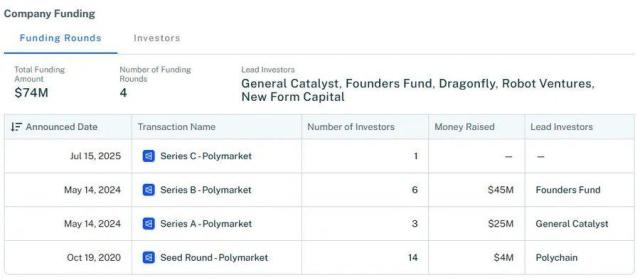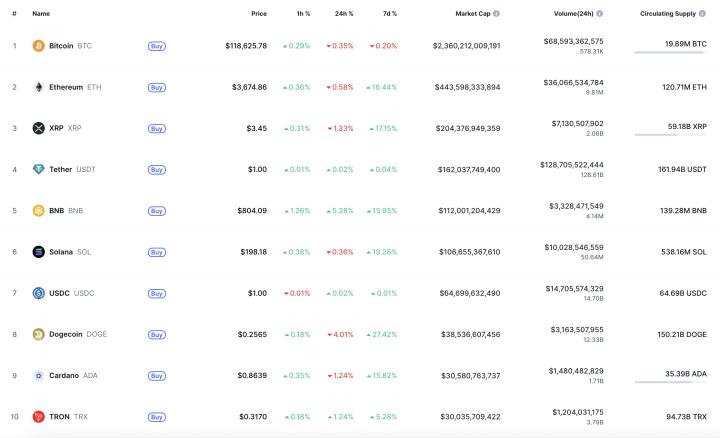BTC hit a new all-time high last week, but MSTR's stock price dropped over 6% on Friday, still far from its November high of $543. Is MSTR losing its leverage advantage over BTC?
Table of Contents
ToggleIs mNAV at a low point for two months, has MSTR lost its advantage?
As the pioneer of BTC reserve companies, MicroStrategy has always been known for its BTC leverage and agency advantages, potentially surpassing BTC itself through structural leverage, asset net value premium, or embedded optionality of convertible bonds—bringing amplified returns.
However, its mNAV (current stock price to BTC value ratio) has dropped from a high of 3.89 in November to 1.9, hovering below 2 for the past two months, raising questions about whether MSTR is losing its BTC leverage advantage.

MSTR not selected for S&P 500 Index
Twitter founder Jack Dorsey's payment platform Block will replace Hess Corp. (ticker HES) as an S&P 500 component before market open on 7/23, while Strategy, long-anticipated, was not included this quarter. If it enters the S&P 500 Index, BTC would begin to "automatically permeate all portfolios", including traditional 401k, retirement funds, and passive investment portfolios, potentially boosting MSTR's stock price.
Strategy's financial report will be released on 7/31. With BTC prices rising in the second quarter, Strategy previously announced an unrealized BTC gain of $14.05 billion in Q2, promising excellent profit records. Since one condition for joining the S&P 500 Index is "positive profit in the most recent quarter", Strategy is likely to qualify next quarter, though official index inclusion will be after October.
MSTR trading volume declines, reduced volatility unfavorable for fundraising
According to 10x Research, MSTR's recent trading volume has significantly dropped from $15 billion to $5 billion, with 30-day volatility plummeting from 165% to 58%, only slightly higher than BTC's 43%. High volatility is key to raising additional cash through stock and convertible bond sales, as embedded stock options require significant price fluctuations to increase value.

MicroStrategy's buying power weakens, stock price unable to advance smoothly
Strategy purchased only 17,075 BTC in June, far below its January to May purchase volumes. The author speculates this might be due to the recent low mNAV, which is unfavorable for fundraising and affects MicroStrategy's BTC purchasing speed. Additional stock issuance partially used to pay high preferred stock dividends, along with increasing competition, may also explain why its stock price cannot advance smoothly.
(Why isn't MSTR rising despite BTC hitting new highs?)
| Month | BTC Purchase Quantity |
| January | 24,707 |
| February | 27,989 |
| March | 29,089 |
| April | 25,370 |
| May | 26,695 |
| June | 17,075 |
Risk Warning
Cryptocurrency investments carry high risks, with potentially significant price volatility. You may lose your entire principal. Please carefully assess the risks.
Twitter founder Jack Dorsey's payment platform Block (formerly Square) is about to join the S&P 500 Index, highlighting the growing influence of digital payments and cryptocurrencies in mainstream finance. Block currently owns 8,584 BTC, ranking eleventh among public companies. Having started purchasing BTC in 2020, according to Bitcointreasuries, its average cost is $30,405, with a profit rate of 288% and unrealized gains of $750 million.
ToggleBlock Officially Joins S&P 500 Index
According to the press release issued by S&P Dow Jones Indices on Friday, Block Inc. (stock code XYZ) will replace Hess Corp. (stock code HES) as a component of the S&P 500 Index before market opening on 7/23, after Hess was officially acquired by Chevron on 7/18. Block's stock price rose 14% in after-hours trading, reporting at $79.1 before this article's deadline.
Being included in the US stock index benchmark can enhance a company's image, and with the growth of passive investment funds, inclusion in the components can "automatically permeate into all portfolios", including traditional 401k, retirement funds, and portfolios of broad passive investors, giving the stock more opportunity to rise.

Block Expands from Payment to Financial Technology Company
Block has evolved from a payment processor to a broader financial technology company, offering peer-to-peer transfers, merchant services, and increasingly consumer loan services.
Earlier this year, Block's subsidiary Square Financial Services Inc. received approval from the FDIC to directly provide consumer loans through the Cash App Borrow product.
The company has also integrated Bitcoin payment functionality into Square, reflecting Dorsey's long-standing advocacy for Bitcoin. He remains an influential figure in the digital asset space, recently sharing open-source programming projects on X.
Despite struggling with uneven profit results, Block remains committed to transforming Cash App into a comprehensive banking and loan product.
Monthly BTC Investment Yields Up to 288%
Block began in April 2024 investing 10% of its Bitcoin product gross profit into purchasing BTC. Block currently owns 8,584 Bitcoins, ranking eleventh among public companies. Having started purchasing Bitcoin since 2020, according to Bitcointreasuries data, its average cost is $30,405, with a profit rate reaching 288% and unrealized gains of $750 million.
Risk Warning
Cryptocurrency investment carries high risk, with potentially significant price volatility, and you may lose all principal. Please carefully assess the risks.







